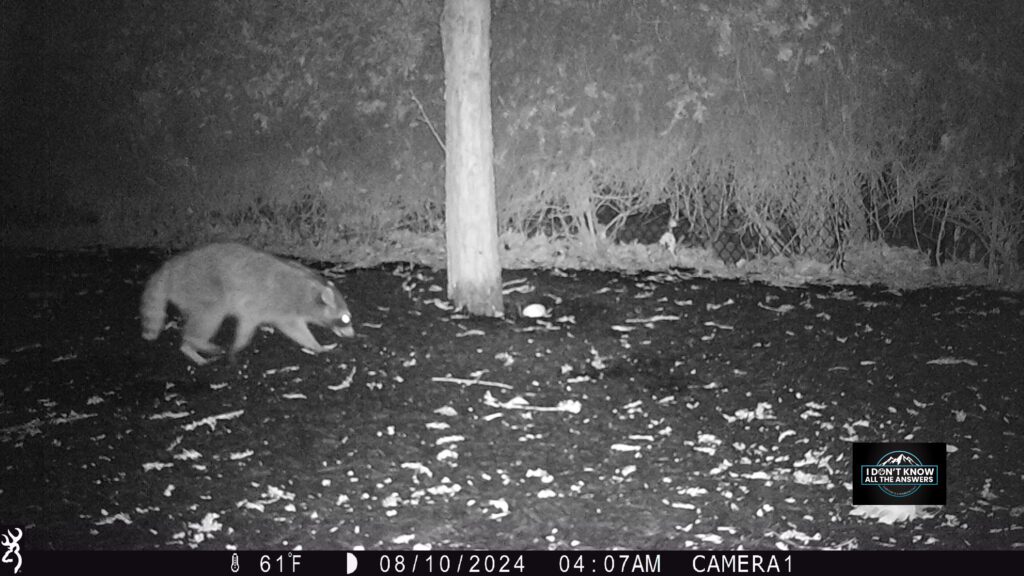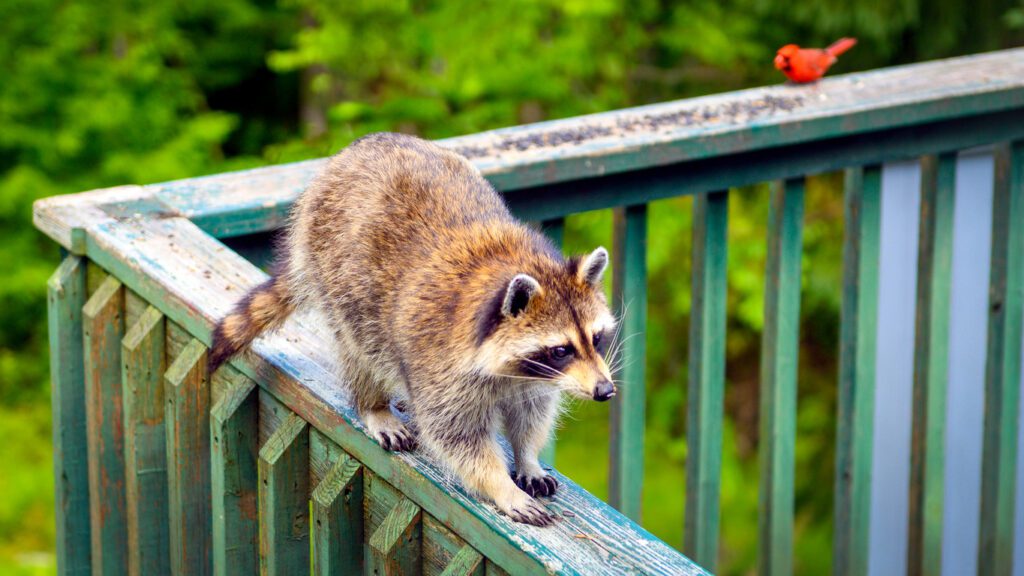While raccoons are often considered troublemakers, did you know that these nocturnal visitors can be a boon for your yard? From providing natural pest control to creating educational opportunities, raccoons can be an unexpected ally for nature enthusiasts, gardeners, and animal lovers.
Natural Pest Control
As I mentioned in earlier posts, once I realized that mystery guests visited my yard nightly, I set up the balance of my Browning Strike Forest field cameras, all previously deployed on the Arnold property. Several pictures showed one or more raccoons rummaging through my garden. I was worried about potential damage, but then I saw fewer insects. These little visitors were helping me manage pests!
Raccoons feed on insects and small rodents, including beetles, grubs, and mice. By keeping these populations in check, raccoons reduce the need for chemical pest control methods, which can harm other wildlife and the environment. For instance, I no longer have to use insecticides, which means my garden is safer for Teddy and Bear and remains a haven for bees and butterflies.
Seed Dispersal
Raccoons are natural foragers, and their habits can unintentionally benefit your garden. As raccoons move from one spot to another, they disperse seeds through their droppings. This can lead to a more diverse plant life in your yard, making it more vibrant and resilient.
I remember reading a study about how raccoons play a crucial role in seed dispersal. By spreading seeds far and wide, they help propagate various plants, contributing to the ecosystem’s overall health. In my garden, I’ve noticed wildflowers and shrubs sprouting in places where I hadn’t planted anything. It’s like having an unexpected yet delightful gardening partner.
Ecosystem Health
The presence of raccoons in your yard is more than just a sign of a healthy ecosystem. These intelligent creatures are integral to the local food web, serving as predators and prey. Their activities are crucial in maintaining the natural balance, ensuring no single species dominates the environment.
Having raccoons in my yard has made me appreciate the intricate web of life outside my door. They remind me that every creature, including these often misunderstood raccoons, has a role in maintaining ecological harmony.


Educational Opportunities
One of the most rewarding aspects of having raccoons visit my yard is the opportunity to observe them up close. It’s a fascinating way to teach about wildlife and the importance of conservation. Watching a raccoon skillfully open a trash can or delicately handle food can be entertaining and deeply educational.
Through my many observations, I have developed a deep respect for wildlife. I have learned about raccoons’ habits, diet, and behavior, fostering a sense of curiosity and responsibility toward nature.
Tips for Coexisting with Raccoons
If you’re excited about the idea of having raccoons in your yard, here are some tips to ensure a safe and harmonious coexistence:
- Secure Trash Cans: Use raccoon-proof lids to prevent them from scavenging through your garbage.
- Provide Water Sources: A small water dish can attract raccoons without causing any harm.
- Plant Native Vegetation: This can provide natural foraging opportunities and support other local wildlife
- Observe from a Distance: Enjoy watching raccoons, but avoid direct interactions to keep you and the animals safe.
By following these tips, you can create a welcoming environment for raccoons and enjoy their numerous benefits to your backyard. However, it’s essential to be aware of potential risks, such as the spread of diseases like rabies and leptospirosis, and take necessary precautions to ensure a safe and caring coexistence.
In conclusion, raccoons are more than just urban scavengers; they are valuable contributors to our ecosystems. By providing natural pest control, aiding in seed dispersal, maintaining ecosystem health, and offering educational opportunities, raccoons can transform our perception of them from pests to partners in our gardening and nature-loving efforts.
Why not give these masked visitors a chance? You may find that your yard and perspective will flourish unexpectedly.
References:
ᐅ Do Crickets Eat Roaches? | Toxic or Healthy. https://whatanimalseat.com/do-crickets-eat-roaches/
Top 15 Animals that live in a lakes. https://write4animals.com/animals-that-live-in-a-lakes/
Thank you for reading this blog post. If you have any questions or comments, please leave them in the Comments section below.
Copyright © 2019. I Don’t Know All The Answers, Nikki Mastro.
All of my photographs and documents are Copyrighted.
The main image and another photo included in this blog post are from the iStock.com library.
No part of this website, including text, photographs, and documents, may be reproduced, stored in a retrieval system, or transmitted in any form or by any means without written permission from the copyright holder. All unauthorized use is strictly prohibited. If you choose to copy or share any information from my site, you must provide a link to the source. I appreciate your cooperation.
For further information concerning “I Don’t Know All The Answers.”
– Website and Blog: https://www.idontknowalltheanswers.com
– Facebook: https://www.facebook.com/Nikki.L.Mastro/
– Instagram: https://www.instagram.com/i_dont_know_all_the_answers/
– Linkedin: https://www.linkedin.com/in/nikki-mastro-05455a3a/
– Youtube Channel: https://www.youtube.com/@idontknowalltheanswers1954

